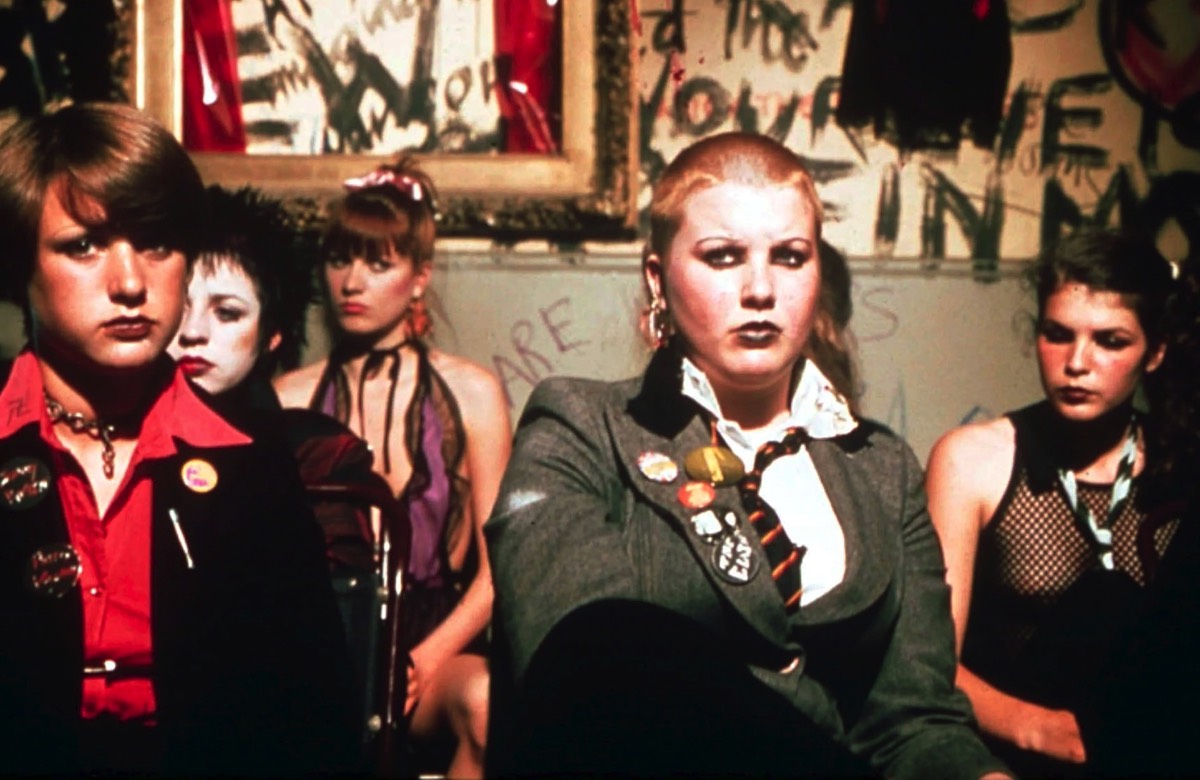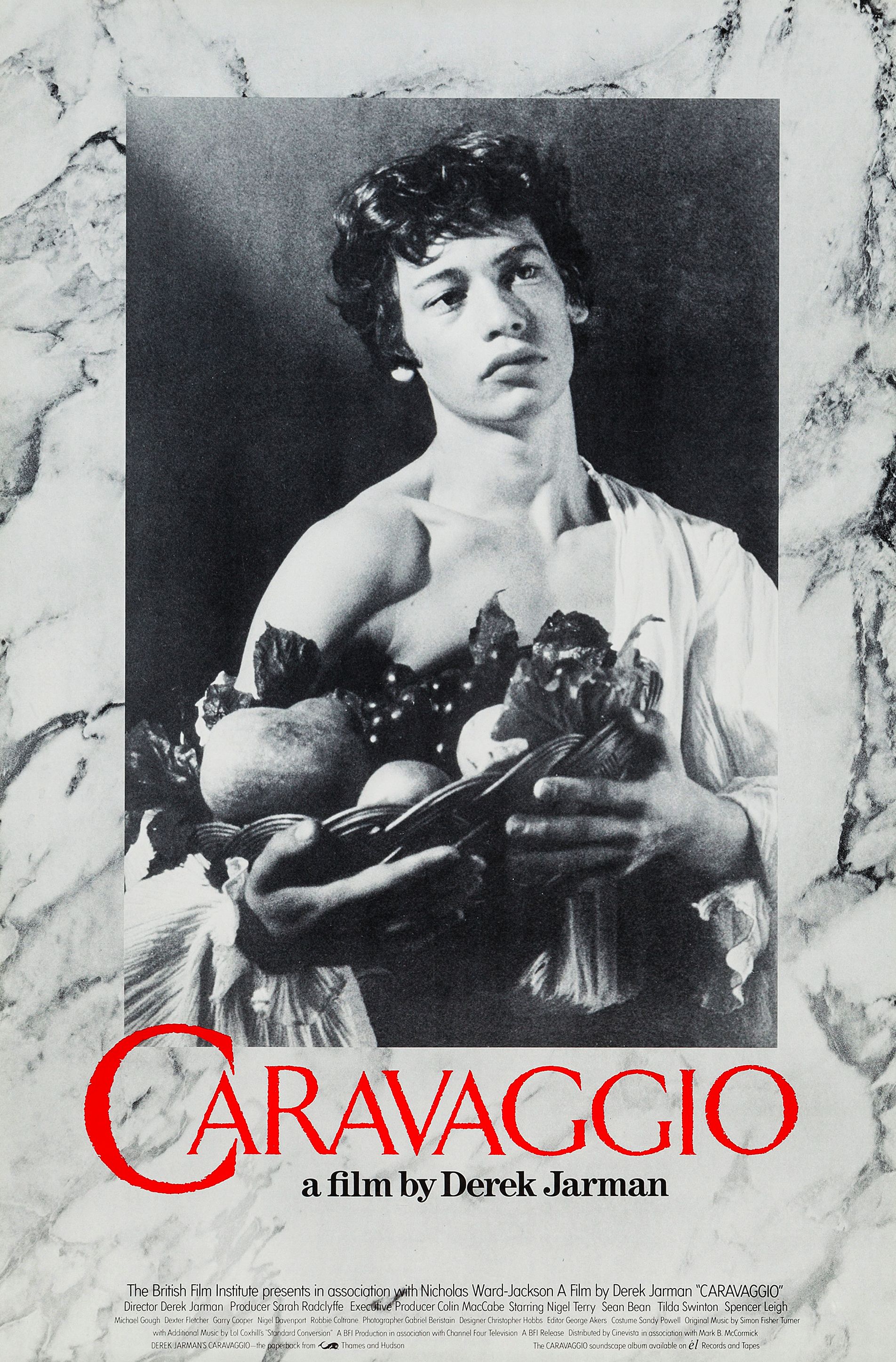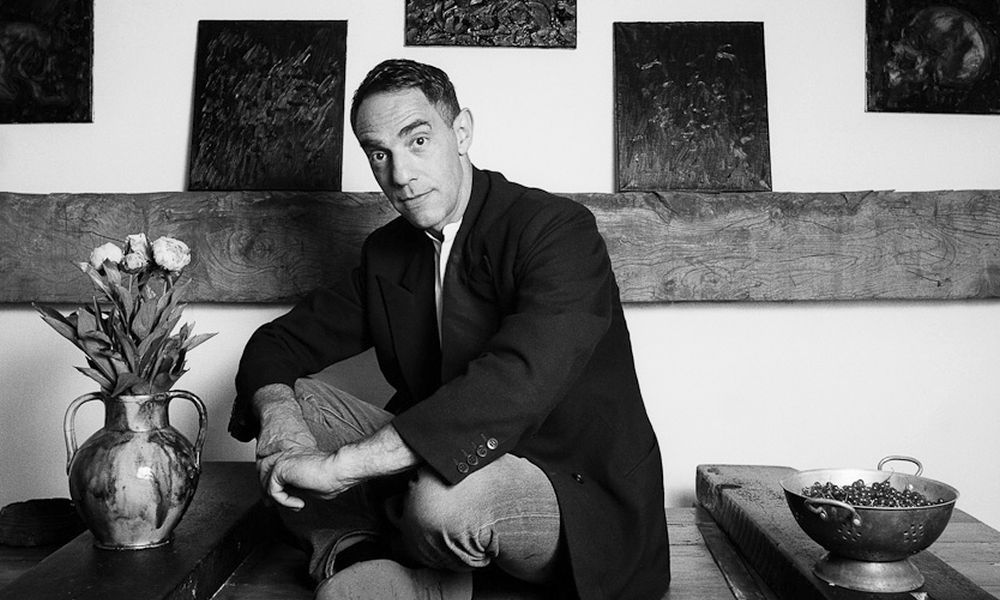"Derek Jarman became one of Britain’s most original and highly controversial filmmakers. Vilified by the self-appointed guardians of the nation’s morals, he has been hailed as a genius by others. It was Jarman’s uncompromising and direct approach to cinema which resulted in such extreme and polarized evaluations of his work… Jarman’s premature death—he was yet another casualty to the scourge of AIDS—robbed the film world of one of its most daring and controversial talents." - Duncan J. Petrie (International Dictionary of Films and Filmmakers, 2000)
Derek Jarman
Director / Screenwriter / Cinematographer / Editor
(1942-1994) Born January 31, London, England
Top 250 Directors
(1942-1994) Born January 31, London, England
Top 250 Directors
Key Production Countries: UK, Japan
Key Genres: Drama, Gay & Lesbian Films, Short Film, Biopic, Music, Fantasy, Documentary, Avant-garde/Experimental, Comedy
Key Collaborators: James Mackay (Producer), Simon Fisher-Turner (Composer), Christopher Hobbs (Production Designer/Leading Actor), Peter Cartwright (Editor), Tilda Swinton (Leading Character Actress), Christopher Hughes (Cinematographer), Genesis P-Orridge (Composer), Spencer Leigh (Character Actor), Nigel Terry (Character Actor), Ken Butler (Screenwriter), Don Boyd (Producer), Richard Heslop (Cinematographer)
Key Genres: Drama, Gay & Lesbian Films, Short Film, Biopic, Music, Fantasy, Documentary, Avant-garde/Experimental, Comedy
Key Collaborators: James Mackay (Producer), Simon Fisher-Turner (Composer), Christopher Hobbs (Production Designer/Leading Actor), Peter Cartwright (Editor), Tilda Swinton (Leading Character Actress), Christopher Hughes (Cinematographer), Genesis P-Orridge (Composer), Spencer Leigh (Character Actor), Nigel Terry (Character Actor), Ken Butler (Screenwriter), Don Boyd (Producer), Richard Heslop (Cinematographer)
"In his films Derek Jarman liberally mixes new and anarchic subjects into the framework of orthodox cultural forms… He has proved himself a master of producing lavish-looking, seductive films even with ludicrously small sums of money." - The Illustrated Who's Who of the Cinema, 1983
"English filmmaker and artist Derek Jarman was an experimental director who used the cinematic medium to explore questions of masculinity and homosexuality. He was an iconoclast who took the necessary risks in order to approach cinema from a non-conventional perspective, connecting a history of injustice to pressing contemporary issues… Jarman was an openly gay man and was an outspoken advocate of gay rights. This conflict became a recurring motif in his artistic endeavours which lashed out against the injustices he saw around him. His personal battle with AIDS made him reflect on his morality and influenced his films, especially his 1993 magnum opus Blue where he reimagined the very definition of what a film is." - Swapnil Dhruv Bose (Far Out Magazine, 2021)

Jubilee (1978)
"Coming out of art school in the 1960s, set designer for ballet and opera and for Ken Russell, working with Super 8mm and video on lower than low budgets, Jarman has often been placed unproblematically by both critics and admirers in the gay avant-garde, radically and scandalously 'other' to the traditions of British cinema… By his own account, however, he is a traditionalist, consigned to the margins rather than choosing to work there: "The one thing I really regret about my career was that I was put into the position of being anything but the most traditional film-maker of my generation." - John Caughie (Encyclopedia of European Cinema, 1995)
"Derek Jarman was a legendary English artist and filmmaker, best known for his avant-garde art films and also renowned as a set designer, gardener, author and gay rights activist… Script-driven narrative was not for him: instead he favoured an organic painterly approach, creating vibrant montages of images and ideas. He started out in set design, working on films including The Devils, directed by Ken Russell, then moved onto experimental super 8 mm film shorts, a medium he continued working with for many years… Jarman couldn't help but react to the society he was living in, the country that was becoming Thatcher's Britain. His answer to the iron lady was to produce iconoclastic art - art that looked at history but was located in the here and now." - Film London
"Leading avant-garde British filmmaker whose visually opulent and stylistically adventurous body of work stands in defiant opposition to the established literary and theatrical traditions of his sometimes staid national cinema. With influences ranging from the eccentric writing-directing team Michael Powell & Emmeric Pressburger to seminal gay aesthetes Jean Cocteau and Kenneth Anger, Jarman advocated a personal cinema more dedicated to striking imagery and evocative sounds than to the imperatives of narrative and characterization." - The Hollywood.com Guide to Film Directors, 2004
"Derek Jarman is Britain's most singular director and one of the most compelling artists to have explored the moving image. In his short but expansive career, he completed 11 feature films that eschew conventional narrative, and more than 60 Super-8 and 16mm montage films. His cinema tackled sexuality, history and politics without compromise and examined the creative process itself with a deeply affecting sensibility. In addition to his work in theatre and cinema, Jarman maintained his practice as a painter, wrote a series of memoirs and diaries, made music videos and was a passionate gardener. Twenty years after his death from AIDS-related conditions, his films, writing and paintings constitute, more than ever, a vital statement against cultural conservatism, and the will to be a self-determining artist." - José Da Silva (Queensland Art Gallery, 2014)
"Derek Jarman was the maverick radical of the British cinema during the late 1970s, '80s, and early '90s. His highly idiosyncratic form of avant-garde art cinema managed to sustain itself due to his personal reputation as an auteur, as an enfant terrible, and to his more or less public private life. Jarman was an artist of many dimensions: an author of autobiographical journals, a poet, a painter, a scriptwriter, a film director, a cinematographer, and a set designer. Jarman was at the same time a modernist and a Renaissance artist." - Erik Hedling (BFI Screen Online)
"People say to me, You make fantastic films and I say, No, I make documentaries." - Derek Jarman
Selected Filmography
{{row.titlelong}}
Derek Jarman / Favourite Films
L'Atalante (1934) Jean Vigo, The Bitter Tears of Petra von Kant (1972) Rainer Werner Fassbinder, The Canterbury Tales (1971) Pier Paolo Pasolini, The Life and Death of Colonel Blimp (1943) Michael Powell & Emeric Pressburger, Madame de... (1953) Max Ophüls, Meshes of the Afternoon (1943) Maya Deren & Alexander Hammid, Modern Times (1936) Charles Chaplin, Orpheus (1950) Jean Cocteau, Pandora's Box (1929) G.W. Pabst, The Wizard of Oz (1939) Victor Fleming.
Source: Sight & Sound (1992)
L'Atalante (1934) Jean Vigo, The Bitter Tears of Petra von Kant (1972) Rainer Werner Fassbinder, The Canterbury Tales (1971) Pier Paolo Pasolini, The Life and Death of Colonel Blimp (1943) Michael Powell & Emeric Pressburger, Madame de... (1953) Max Ophüls, Meshes of the Afternoon (1943) Maya Deren & Alexander Hammid, Modern Times (1936) Charles Chaplin, Orpheus (1950) Jean Cocteau, Pandora's Box (1929) G.W. Pabst, The Wizard of Oz (1939) Victor Fleming.
Source: Sight & Sound (1992)
Derek Jarman / Fan Club
Apichatpong Weerasethakul, Gus Van Sant, Mark Jenkin, Rod Stoneman, Isaac Julien, Sarah Turner, David Ehrenstein, Claire Monk, Sophie Mayer, B. Ruby Rich, Mark Cousins, Andrew Kötting.
Apichatpong Weerasethakul, Gus Van Sant, Mark Jenkin, Rod Stoneman, Isaac Julien, Sarah Turner, David Ehrenstein, Claire Monk, Sophie Mayer, B. Ruby Rich, Mark Cousins, Andrew Kötting.
"Fan Club"
These film critics/filmmakers have, on multiple occasions, selected this director’s work within film ballots/lists that they have submitted.
These film critics/filmmakers have, on multiple occasions, selected this director’s work within film ballots/lists that they have submitted.


